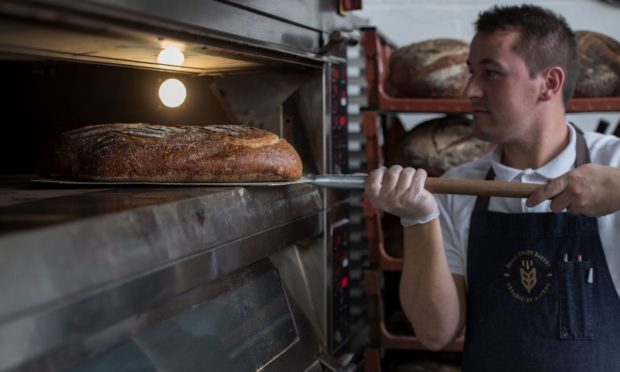Industry body Scottish Bakers wants training staff to be given ‘essential worker’ status so they can return to equipping employees and apprentices with vital skills.
Having fed the nation through one of its darkest hours, Scotland’s food and drink industry is now looking to how it bounces back post-lockdown.
Key to the growth and development of any business is training. Now, Scottish Bakers, the trade body with more than 200 members in Scotland, is calling on the Scottish Government to give trainers and assessors working in the industry “essential worker” status to allow them to continue to equip apprenticeships and new-starts with the skills they need.
Scottish Bakers, provides training to 63% of its 200 member companies in Scotland, as well as working with businesses in the wider food and drink sector delivering courses on health and safety, food preparation skills, efficiency and productivity.
Alasdair Smith, CEO of Scottish Bakers, said: “The issue that we’ve faced as a provider of training is as soon as the severity of the crisis emerged, even before lockdown, the businesses we’re working with to deliver apprenticeships were very quickly saying they didn’t want anyone who’s not associated with their business coming on site so that they could limit the potential spread of Covid-19.
“So training effectively stopped stone dead by the time we got to the end of March and since then we’ve had to furlough our team of trainers and assessors.
“We have a list of 225 apprentices on our books at the moment whose training has paused because we can’t get into the businesses. The obstacle that we face is we still don’t have legitimacy to get trainers out and back on the road. What we’re looking for is vocational workplace trainers to be recognised as essential workers so there’s an enhanced level of legitimacy.”
He added: “From our perspective what’s essential is that we respect every single health and hygiene protocol that’s in place, whether that’s social distancing or wearing PPE. We’ve got a team of assessors and trainers who are all experienced and love what they do. They want to get their sleeves rolled up and back working with businesses. Efficiency and productivity is going to be more important than ever in the coming months, and training plays a vital part in that.”
Though food and drink producers have been allowed to keep operating through the Covid-19 pandemic they have been asked to limit those entering workplaces to essential staff only to maintain social distancing. Most admin, management and support staff are still working from home. Currently, those employed to train new recruits and apprentices would be considered non-essential workers and this is what Scottish Bakers want to see change.
“Without trainers in the workplace, businesses many not be able to fill vacancies and develop the staff required to maintain high productivity levels.
“For the apprentices currently on our programmes whose learning has been interrupted, the concern is that they don’t get the opportunity to complete training or that it is delayed so much catching up becomes very difficult,” Alasdair added.
“The way the economy has been impacted in recent weeks means people will be changing jobs, losing jobs, getting new jobs, so the skills required of new people may not be able to be supported unless we can get back out there. That has the effect of potentially holding businesses back.
“We need action from the Scottish Government to both encourage businesses to resume training activities and provide financial help to us that will help maintain our capacity to deliver high-quality skills and training to scores of apprentices when restrictions begin to ease.
“Without action, our ability to preserve and pass on valuable craft and production skills, countless business and apprentices will potentially lose out.”

